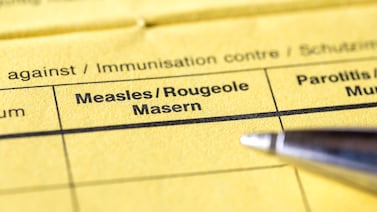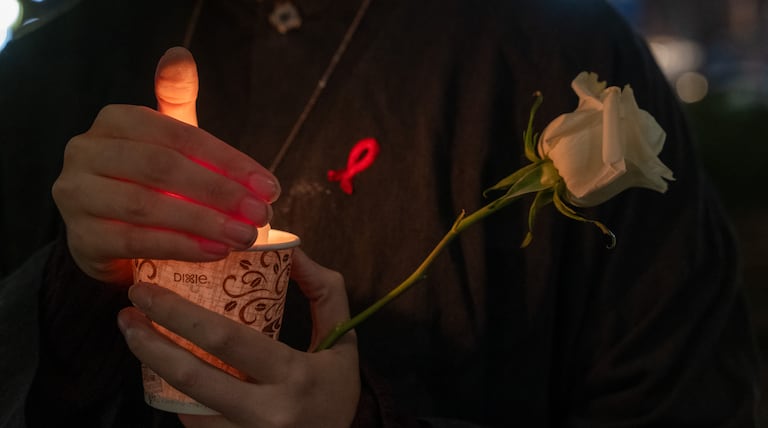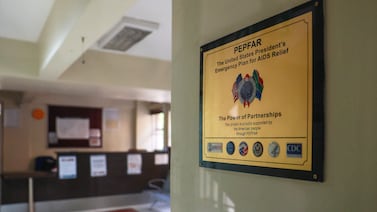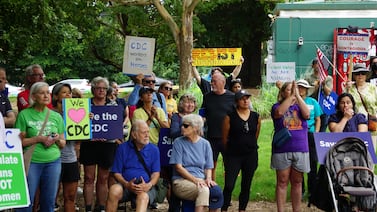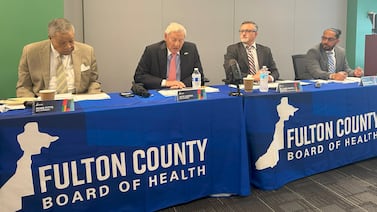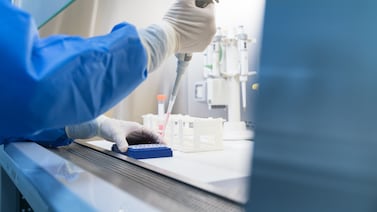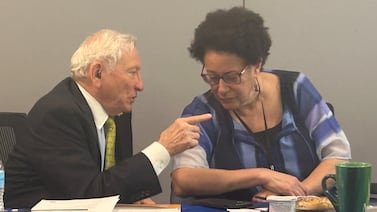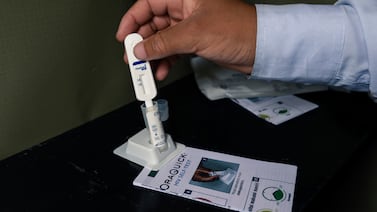I had lived through the transformation of HIV in the United States — from a death sentence to a manageable chronic illness. Now, I had the privilege of witnessing that transformation again, on a massive scale.
Other gaps in protection against the highly contagious disease include access to hard-to-reach clinics and ‘social determinants of vaccination.’
New York City has made incredible progress against HIV, but rising infection rates, persistent disparities, and looming federal funding cuts risk a backslide.
HIV physician John Weiser talks about why complying with President Donald Trump’s orders to erase transgender people is bad for science and society. And he notes that acquiescing didn’t spare the CDC from further harm.
The county health agency identified the first measles case Sept. 10 in the student, who had spent time on campus, at a Sweetgreen eatery at Ponce City Market, and local soccer practices and games.
Together Take Me Home, based at Emory University, delivers the tests through an easy-to-use website and integration with dating apps.
Also in the Global Health Checkup: Food poisoning in Indonesian school lunches, more on Ebola in Congo, a tiny sandfly parasite, and the odds of another pandemic.
Funding cuts sting, but groups gathered for the Saving Ourselves Symposium in Atlanta say community joy and resilience will keep them going.
Fired-then-reinstated workers at the Centers for Disease Control and Prevention worry about the future of public health amid proposed downsizing — and now a traumatic attack.
The firings came amid delays in funding for HIV initiatives to state and local health departments from the CDC. Those funds have since arrived.
While Congress fails to stave off cuts to HIV care, community leaders in Mississippi and beyond race to limit the damage.
Researchers laid off in April were putting the finishing touches on in-depth HIV surveys that guide treatment and prevention. Some staff have been reinstated, but data remains in limbo.
Advocates warn Black LGBTQ+ Georgians could lose access to a host of services and health care if the proposed legislation is enacted.
The cancellation of the funds comes weeks ahead of the FDA’s June 19 deadline for deciding on approval of lenacapavir, a twice-yearly injectable drug to prevent HIV.
Organizers are concerned about access to services like testing and access to preventive drugs after the layoff of health department staff who worked on HIV and sexual health.
The Centers for Disease Control and Prevention recommends that every adult get tested at least once in their lifetime as a part of routine health care, but only about a third of Americans do it. Here's how to get it done.
The layoffs “were done without the prior knowledge or approval of the Georgia Department of Public Health,” spokesperson Nancy Nydam said. “DPH is reviewing the actions.”
The Together Take Me Home project, based at Emory University in Atlanta, has delivered almost 750,000 free home testing kits to people across the country over the past three years.
A disruption in federal funds has jeopardized HIV testing and outreach in Mississippi, and researchers warn of a resurgence of the epidemic in the region.
The terminations have spared no part of the country, politically or geographically. Of the organizations that had grants cut in the first month, about 40% are in states President Donald Trump won in November.

